In Tennessee, offenses for drug crimes can vary depending on where the crimes take place. The Tennessee legislature passed a law in 1995– known as the Tennessee Drug-Free School Zone – which provides for increased penalties for drug offenses if they take place near schools.
The law, codified at Tenn. Code Ann. § 39-17-342, provides:
It is the intent of this section to create drug-free zones for the purpose of providing vulnerable persons in this state an environment in which they can learn, play and enjoy themselves without the distractions and dangers that are incident to the occurrence of illegal drug activities. The enhanced sentences authorized by this section for drug offenses occurring in a drug-free zone are necessary to serve as a deterrent to such unacceptable conduct.
The legislature determined that such increased penalties were necessary not only to protect children from harms associated with drug trafficking but also to serve as a greater deterrent to such conduct.
A decade later, in 2005, the Tennessee legislature amended the law to expand the list of areas in which the law applied to protect children. Such places included preschools, child care agencies, public libraries, recreational centers, and public parks.
Impact of the Drug-Free Law
As stated, the law provides for increased penalties if the defendant is committing drug offenses at or near a school. This type of law is known as a penalty-enhancement law; it increases or enhances the sentence. Under this law, a person guilty of a criminal drug offense will be punished one classification higher. In other words, a Class C felony could be a Class B felony if there is a school zone violation. Or a Class E felony could be become a Class De felony.
The law also provides for another form of an enhanced penalty. The law provides: “Notwithstanding any other provision of law or the sentence imposed by the court to the contrary, a defendant sentenced for a violation of subsection (b) shall be required to serve at least the minimum sentence for such defendant’s appropriate range of sentence.” This means that if a person commits a school zone offense, the offender would be required to serve in full at least the minimum sentence within the appropriate range of punishment prior to release. This means that if a defendant received a two to four sentence, the defendant would have to serve at least two years. A violation of the school zone law occurs if the drug offense takes place at or one school grounds, or within 500 feet of any “public or private elementary school, middle school, secondary school, preschool, child care agency, public library, recreational center, or park.” See Tenn. Code Ann. § 39-17-432(b). Notice the broad nature of this law. The law applies if the violation occurs not only at all types of schools but also child care agencies, public libraries, rec centers, or parks
Court Decisions and Constitutionality of the Law
The Tennessee Supreme Court recently clarified in State v. Linville (2022) that a defendant receives a one-level penalty enhancement if they are near a school zone but does not receive such an enhanced penalty if they are near a public park. However, an offender near a public park still must serve the minimum sentence – just like an offender near a school zone.
What this means is that many persons may not even know they are subject to a drug zone violation because they did not realize they were within 500 feet of a library, rec center, or park. Needless to say, this law has broad application. The law used to be even worse, as it used to apply whenever an offense occurred within 1,000 feet of schools or parks.
Critics of the school zone enhancement law long have questioned its fundamental fairness. They point out that many defendants may not even know they are within a school zone. But, Tennessee courts have upheld the law or earlier iterations of the law. For example, the Tennessee Court of Criminal Appeals ruled in State v. Jenkins (1999) that the law was not vague and did not violate due process. The Court also rejected the idea that the law violated equal protection of the laws.
Need for a Lawyer
Needless to say, if you are charged with a drug offense – and particularly an enhancement under the Drug-Free Zone law – you need an experienced criminal defense attorney. Again, under this law, you are facing an enhanced sentence and/or more time in prison.
However, an experienced criminal defense attorney may be able to negotiate with prosecutors so that you receive a fair plea. Nashville-based attorney Philip N. Clark of PNC Law is just such an experienced attorney. He is a zealous advocate on behalf of his clients. Furthermore, he has nearly twenty (20) years of experience as a former Metro police officer. If you face a charge under the Drug Free School Zone Act, contact attorney Philip Clark at (615) 678-1033 or e-mail him at philip@tncriminaldefenseattorney.com.
Connect with Philip N. Clark right away!
(615) 785-2000

